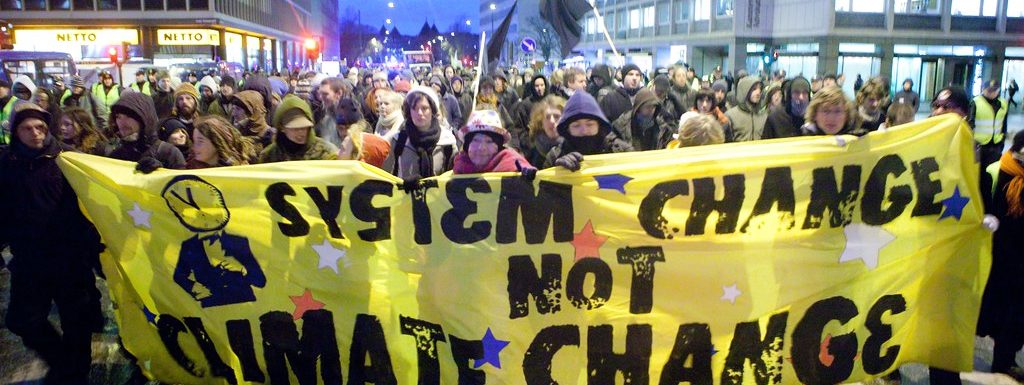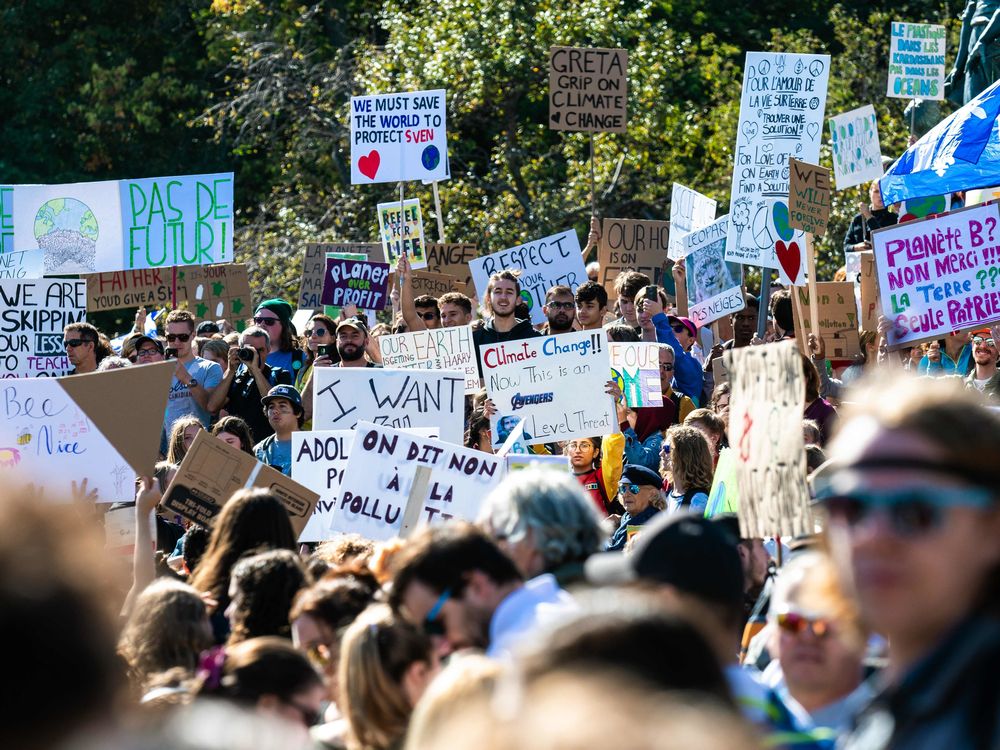Can Capitalism Evolve? I don’t know, but I know how you can help.


‘Business as usual’ is about to die. It may die violently, or it may evolve peacefully, but one way or another, it’s on its way out. It now seems that if you’re not actively pursuing dramatic change, you’re effectively impeding it—to all our peril. The question for us all is, what are we going to do about it?
Only substantial change will enable equitable and sustainable human prosperity on our crowded and changing planet. And the powers that be increasingly understand this. This point was hammered home for me in Paris in May, when 132 member nations voted to approve our statement to that effect in the UN biodiversity report[1]. That report clearly stated the need for transformative change towards a global sustainable economy, including overcoming opposition from vested interests—many of which were represented in the room. When push came to shove, there was no more dithering, only thunderous applause. This rung clearly in all our ears with every deafening clap.
That’s how my head knows that ‘business as usual’ will soon die (even though this was merely a non-binding agreement to change). But I’ve only just become certain in my gut, thanks to a strikingly different source—one without credentials, bureaucracy, citations, or esteemed scientists.
Days ago one of my brilliant and mature students came into my office for a chat. This is the kind of person that has been working towards sustainability through all of the regular channels for a decade now, learning broadly, reflecting deeply, and probing extensively. She always calls it like she sees it, and I’ve never seen her take my—or anyone else’s—word for a claim until it’s been proven empirically or theoretically.
Over the course of the hour, this student broke down in tears and asserted forcefully that everything that we’re doing in the sustainability field is failing. If anyone in our building thought that they were really working towards a solution professionally, she said, they didn’t have their heads screwed on straight. The system has to end, she avowed—we have to bring it down. And much more.
The details don’t matter. By the end of the hour of intense and thoughtful conversation, she had retracted some bits and acknowledged that radical revolutions must surmount several crucial obstacles–ones without proven solutions—before delivering the kind of world she envisions.
What does matter is that she remains undaunted in her complete commitment to non-violent revolution.
The same emotional force has propelled 16-year old climate activist Greta Thunberg to be in the news constantly now. Not because she has all the facts, but because the force of her commitment has tapped a widespread heartfelt conviction about injustice that simply won’t die.

Millions of children are standing with Greta, figuratively if not literally. When I talked to three classes of ten- and eleven year olds in Ottawa (my daughter’s teacher arranged it), I looked out on a sea of desperate but committed eyes. They had watched Greta, and they were utterly convinced.
On the face of it, capitalism is not well equipped to meet the existential challenge of climate change and an impending sixth mass extinction. It is well equipped to fuel the rapid extraction of material resources from the Earth’s surface and crust in a Sisyphean task of attempting to satiate the insatiable hunger for ever-more gadgets, luxuries, and comforts. All the while, pollutants leach into waters and soils, and plastics accumulate in mass quantities throughout our lands and oceans.
But here’s my view of it: dramatic changes are needed, and they’re needed soon. I’m not convinced this revolution needs to bring down our whole system, nor that most of us would benefit from that. I’m no ardent fan of capitalism, but I am a fan of history. And history is replete with examples of partly broken systems being torn down and replaced with systems that are no more just, sensible or sustainable. So my willingness to work within the system is less conviction that the system is somehow ‘right’, and more fear of the chaos and whiplash that a massive power void would likely bring.
If current systems are to survive, they will need to transform themselves into forces for planetary restoration, rather than planetary degradation. And that’s no mean feat—ensuring that economic activities nourish nature and its many crucial contributions to people.
It sounds far fetched. And yet it is absolutely feasible. Here’s how it could work.
The underlying values of responsibility are there. A large body of research in the environmental social sciences shows clearly that most people in many populations do perceive responsibility for their impacts on the environment, particularly when they have implications for other people. What they lack is a readily available means to act on that responsibility—in a positive way.
Sure, we can all buy things differently—dolphin-safe tuna, rainforest friendly bananas, sustainable palm oil, bird-friendly coffee. But there are several labels for each of hundreds of issues, most applying to only a small fraction of product choices, and all competing for our attention and limited cognitive resources. Thus consistent eco-conscious consuming is niche—for the uber-committed—which means it’s also prohibitively expensive.
For years in the sustainability movement, we hoped that such heroic acts would be inspiring to the rest of the population and thereby transform supply chains. Now we know the opposite: heroic sustainability mostly turns others off. It’s too complicated, costly, and contentious. And it drastically limits choice. Most people–even if they have strong environmental values–think to themselves, “Those self-righteous suckers!” or “If that’s what it takes to be an environmentalist, then I’m not one and I don’t want to be one.”
What we need is to make it easy, enjoyable, and inexpensive for people and organizations (including companies) to mitigate the negative impacts of their lifestyles and operations. You can’t buy or produce seafood without incurring the incidental catch of sea turtles, albatrosses, and dolphins. But we could–in theory–buy or produce seafood that was packaged with payments that go to fishermen to separately lessen the catch of these animals, and to nourish their populations by protecting nesting habitat.
Similarly, you can’t buy or produce paper or wood without contributing to the loss of soils, risk of landslides, and leaching of nutrients that trigger harmful algal blooms and other problems downstream. But in theory we could buy or produce paper, floors or furniture that was packaged with payments to farmers and forest-dependent communities to separately restore vegetation, retain soils, stabilise slopes, and soak up excess nutrients.
At CoSphere—a Community of Small-Planet Heroes (ecologically restoring economies)—we’re working to make this possible, conspicuous, and then normal across all supply chains. We’re working with NGOs, and we’re looking for partners in business and government. We believe that everyone wants to have a positive effect on the planet and that we just need to create the systems that allow that.
So help us create these systems—the infrastructure for sustainability. Help capitalism evolve to be a force for good, so that it doesn’t crash and burn.
Commit to having net positive impacts, and help us make that possible.
Your friends,
children, customers and students deserve a world full of nature and its beauty,
one that provides for us just as we provide for it. They also deserve to
contribute positively to that world, without back-breaking sacrifice.
Kai Chan is a Professor at the Institute for Resources, Environment and Sustainability at UBC. He coordinated an international team of experts on a ground-breaking analysis of the ways forward, culminating in the “Pathways” chapter of the UN Global Assessment of the Intergovernmental Platform on Biodiversity and Ecosystem Services (IPBES) report. Within four weeks of publication, the report was covered in 49 languages and 165 nations, with an aggregate circulation of 20.1 billion
[1] Formally, the IPBES Global Assessment, where IPBES = the Intergovernmental Science-Policy Platform for Biodiversity and Ecosystem Services.

















